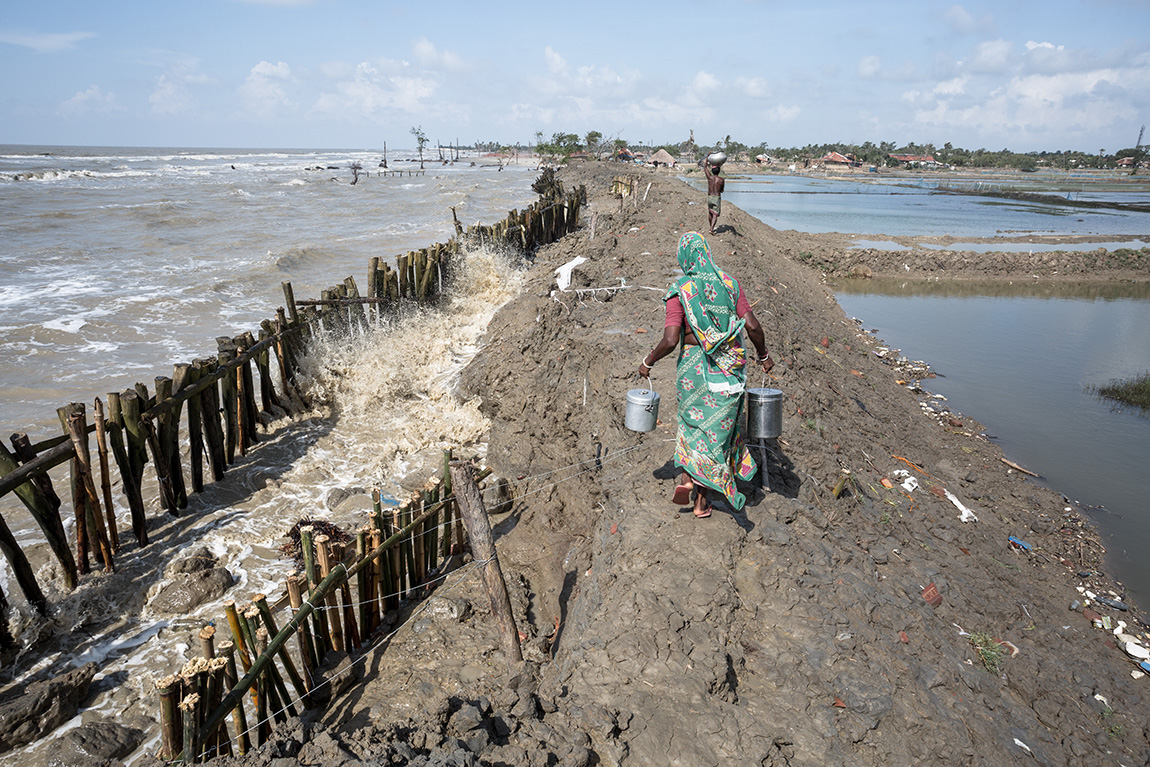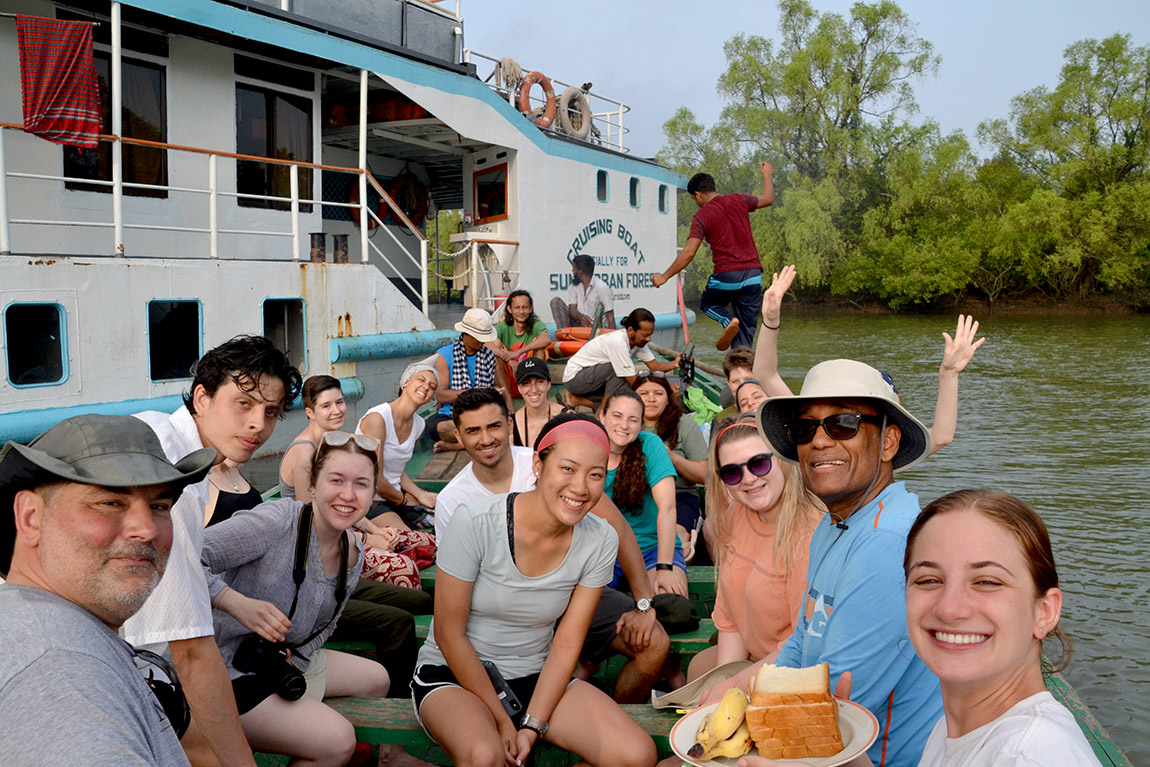On the Front Lines of Climate Change
Every two years Muhlenberg College students who want to fully grasp the scope of climate change have a chance to visit ground zero: Bangladesh.By: Heather Mayer Irvine Friday, June 21, 2019 03:48 PM
 Bangladesh, the site of a faculty-led study abroad experience for Muhlenberg students, is among the nations affected most dramatically by a changing global climate. Photo by Supratim Bhattacharjee
Bangladesh, the site of a faculty-led study abroad experience for Muhlenberg students, is among the nations affected most dramatically by a changing global climate. Photo by Supratim BhattacharjeeThe course, Climate Change and Sustainable Development in Bangladesh, was developed by Professors of Political Science Mohsin Hashim and Jack Gambino, and it was designed to shed light on the lasting effects of climate change on a country that has contributed very little to the problem, Hashim says.
“When [Professor Gambino] and I thought about climate change and sustainable development, we discussed Bangladesh as the ground zero of climate change,” Hashim, who was born in Bangladesh, says. “To the north the Himalayan glacier is melting, and human activity is causing deforestation, and to the south is the Bay of Bengal, where the sea level is rising. The country could have just given up, yet it’s a global leader in adaptation to climate change even though it didn’t have the power to cause it.”
Gambino and Hashim partnered with the Bangladesh Centre for Advanced Studies, led by Nobel Peace Prize winner Atiq Rahman, Ph.D., to help coordinate programming abroad.
The course—a Muhlenberg Integrative Learning Abroad (MILA) program—has just over a dozen students who, after a semester of researching the impact of climate change on industries like agriculture, spend two weeks in Bangladesh seeing those effects firsthand. The group meets with government officials, NGOs and rural farmers to learn about policies and programming.

As part of the trip to Bangladesh, Muhlenberg students completed a four-day riverboat excursion to the Sundarbans, the world's largest mangrove forests and one of the most vulnerable to the effects of climate change. Photo courtesy of Professor Jack Gambino.
MILA courses combine the strengths of personal, on-campus instruction with Muhlenberg faculty members and the transformative nature of global education and study abroad. The courses meet on campus during the fall or spring and conclude with a faculty-led short-term study abroad experience at the conclusion of the semester.
Julia Termine ’20, a public health major and sustainability studies minor who completed the course this year, thought she understood the environmental impact of climate change on mangrove forests, for example, thanks to her studies in school.
“We went to one of the world’s largest mangrove forest, Sundarbans, and I had kind of grasped the impacts [of climate change] in class—I saw pictures—but I didn’t know the scope,” Termine says. “It was eye-opening. I knew it was impacted but not to what extent.”
Perhaps the biggest lesson Gambino and Hashim want their students to learn when they wrap up their fieldwork in Bangladesh is how a small, relatively poor country is leading the charge in fighting and adapting to climate change affecting the entire world.
Hashim says, “The biggest thing we want is for our students to try to be a little more self-aware about what it means to be a global citizen. [You can’t] think our actions have no consequences way beyond our borders.”
“We tend to think that coming from a developed world, we have the answers or know how to get them, but our students find that in Bangladesh there are more well-developed policies and programs responding to climate change than we do in the United States,” Gambino says. “That’s a humbling experience for our students. We tell our students that we don’t go to teach. We go there to learn from what [the Bangladeshi] are doing.”
